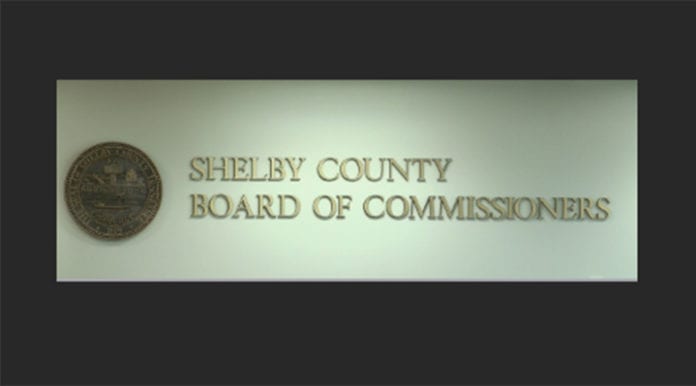Shelby County Commissioners are scrambling for new revenue sources for capital projects after they nixed county Mayor Lee Harris’ bid to double the county’s wheel tax to fund a rebuild of Regional One Health hospital and other construction projects.
The rejection came during a marathon meeting Monday (June 5) that went past midnight. The proposal failed on a 7-6 vote. Nine votes were needed for approval.
When the meeting finally adjourned, the clearly tired commissioners were left with a host of unsettled budget issues that must be resolved before the new budget new starts July 1.
Monday, commissioners actually voted down the proposed increase twice. Harris pushed for a $50 wheel-tax hike that would have doubled the existing $50 charge per vehicle.
The rejection came despite attempts from the mayor and hospital staff to sway commissioners to absorb additional debt obligations and concomitant taxation to fund the large-scale projects, including two new high schools.
“Our fund balance, or savings account, goes negative pretty quickly in that first or second year if we try to service the debt on those projects without the resources to service those debts,” argued Harris.
The mayor continued, “This also means that we have lost our ability to borrow. In the very first year that we try to greenlight these projects, without the revenue to meet the debt obligations, we have more debt that is coming due than we have resources to pay that debt.”
Had the proposal passed, it would have required an additional approval vote on June 26.
While trying to find the additional money, commissioners took two more bites at the apple – both from different ends – to gather the resources.
Commissioner Mick Wright proposed $45 million in budget cuts in the mayor’s next budget proposal to “claw back” funds for the projects. It failed on a 6-7 vote.
Another proposal from Commissioner Edmund Ford, Jr. would have redirected American Rescue Plan Act funds to the projects. It met the same fate.
Ford later estimated a property tax increase of .16 to .18 cents would cover the costs. So far, Harris has been reluctant to raise property taxes.
That stance could change as options are exhausted.
For its part, doubling the wheel tax from $50 to $100 per vehicle was predicted to bring in $34 million additional revenue to the county’s coffers, while increasing its yearly capital budget to $150 million.
It also would have covered funding for the first five years – $350 million – out of the estimated $750 million for a rebuilt hospital campus.
The state would also fund $350 million over five years through the academic health authority.
Tennessee Gov. Bill Lee also was expected to kick in more money in his next budget proposal.
“We treat thousands of trauma victims. We treat thousands of medical patients every day…,” said Dr. Richard Walker, Regional One Chief of Service for Emergency Medicine. “We are at a crisis point where, although we are able to keep things together today, we are beginning to reach a point where the city has grown beyond its capacity…
“If you look at Vanderbilt in Nashville, a similarly sized city, that single hospital alone has 1,200 beds available to it.”
Despite there are four major hospitals in the Medical Center area, Walker said there are only 600-650 “active beds” in the city.
Regional One also draws in thousands of patients from the surrounding area, including Mississippi and Arkansas and West Tennessee.
Responding to Walker’s comments, Commissioner Shante Avant said, “That was a resounding statement about the state of where we are in the health of this community. So, for the various reasons … I do support this wheel tax, to support the schools that need to be built and the rebuild of Regional One.
“The human factor that you just put into all of this, that you never, ever know when you will need Regional One. But you want Regional One to take care of you … For you to humanize that for me in this moment, and what that means if we kick the can down the road…”
Unsurprisingly, some commissioners objected to the “regressive” nature of a wheel tax increase: It would inflict a harder financial burden on low- and lower-middle income earners.
Harris first approached the commission in March with a resolution seeking additional project revenue. A wheel tax was the preferred avenue over a property tax increase. Commissioners never really endorsed the approach.




